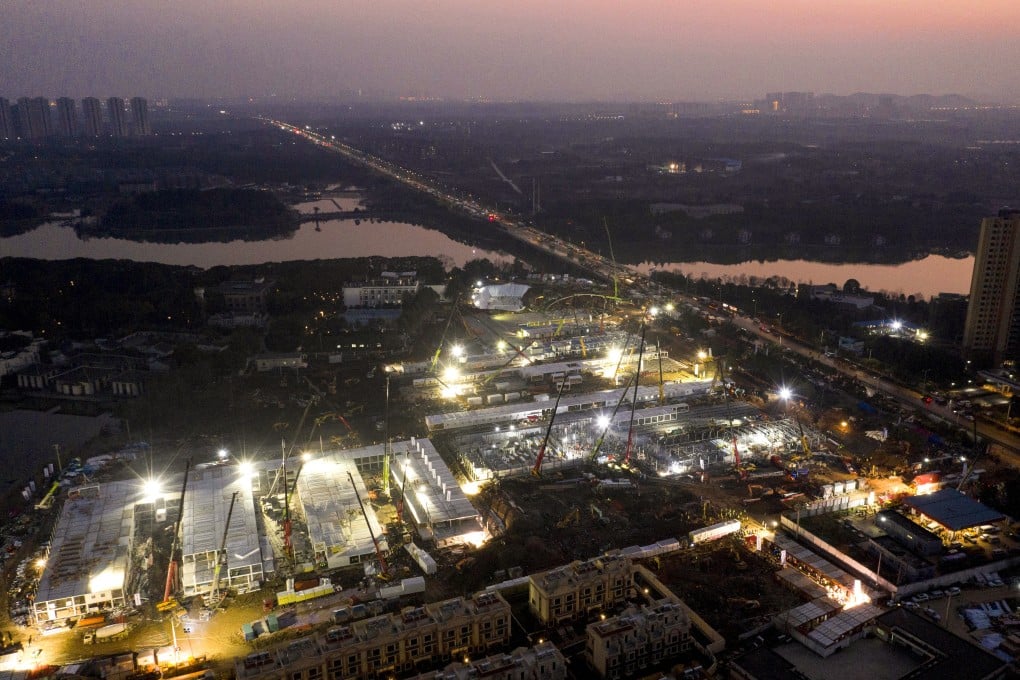Advertisement
China’s race to build temporary hospitals to fight coronavirus ‘too little too late’
- Three makeshift facilities are under construction in Hubei, the epicentre of the outbreak
- But academic says they may be substandard, and specialist treatment centres should already be in place
Reading Time:3 minutes
Why you can trust SCMP

As the number of new coronavirus cases continues to jump every day, one measure to cope with the outbreak in the province where it started – building three makeshift hospitals – has been criticised as “too little too late”.
Hundreds of workers were mobilised last week to build the facilities, which are modelled on the Xiaotangshan hospital built in Beijing in 2003 to treat severe acute respiratory syndrome (Sars) patients.
The temporary hospitals – two in the outbreak epicentre of Wuhan and one in Ezhou, both of which are in Hubei province – are part of efforts to contain the pneumonia-like illness and will provide much-needed hospital beds, where patients can be treated in isolation.
Advertisement
They were expected to be completed in a week to 10 days and live streams from the construction sites in Wuhan have drawn millions of viewers. Other measures include imposing a lockdown on more than a dozen Hubei cities, including Wuhan.

The virus has killed 213 people and sickened more than 9,800 in China so far, with dozens more cases confirmed elsewhere. The World Health Organisation has declared it a global public health emergency.
Advertisement
Advertisement
Select Voice
Select Speed
1.00x